5 ideal dinners before a race: light, nutritious, and energy-packed
In cycling, preparation does not end with the last training session. The body needs to reach the starting line with the glycogen stores fully loaded, stable digestion, and a feeling of lightness that allows performance from the first effort.
Muscular and hepatic glycogen is the main source of energy during a race. It is the fuel that the body uses to maintain intensity, especially in long or explosive efforts. However, these stores are limited and can be depleted in a few hours if not filled correctly.
The pre-race dinner: where the race begins
That's why the hours before, and especially the previous dinner, are as important as the breakfast on the day of the test. The so-called carbohydrate loading is not done in just one meal, but it starts the evening before with foods rich in carbohydrates, low in fat, and easy to digest.
The dinner serves three essential functions:
- Complete the glycogen filling after a day of training or light activation.
- Ensure a peaceful digestion that does not interfere with sleep.
- Avoid nighttime glucose depletion, especially in morning tests.
RECOMENDADO
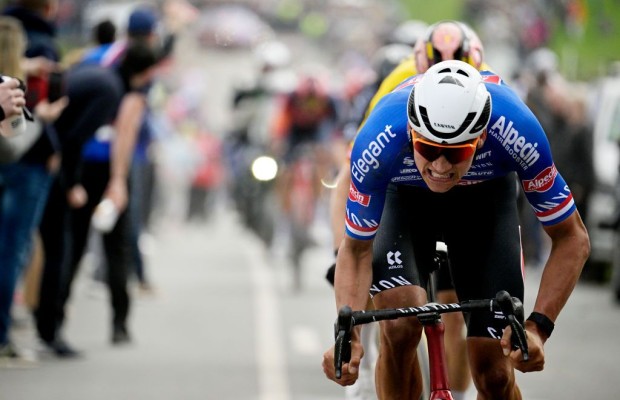
What happens if you exceed your maximum heart rate? Risks of pushing yourself to the limit
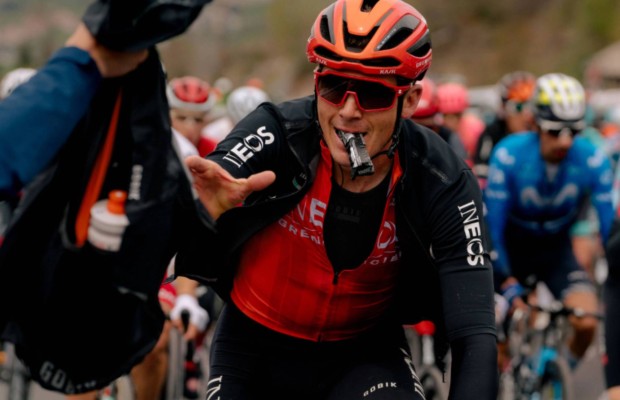
What are nitrates and why will they give you an extra boost in your performance on the bike?

How to wash your bike at a gas station without ruining it
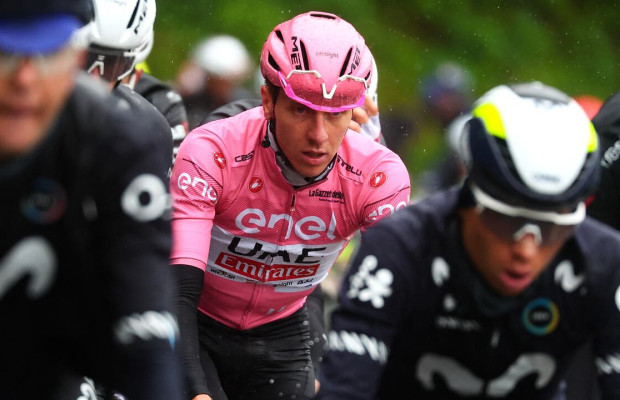
Tips for staying motivated to go out riding when cold, rain or night lurk
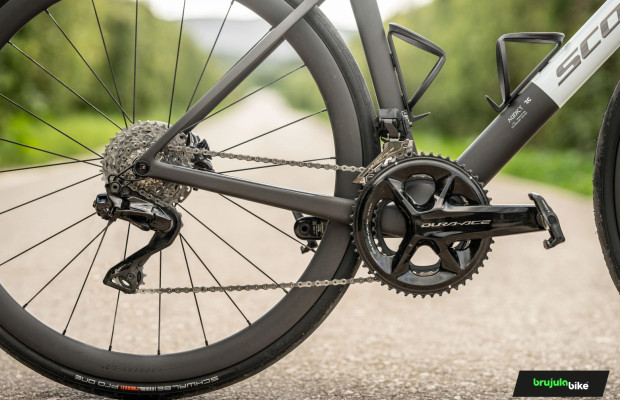
How to choose the right crankset and cassette: a guide to find the right ratio and extend the life of your bike
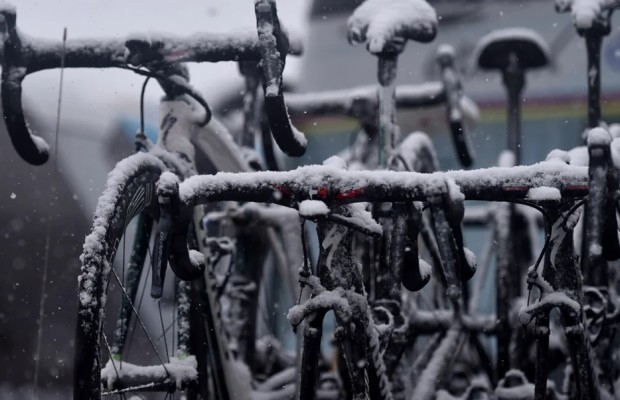
Can I go cycling with the flu or a cold?

It's not about eating more, but about choosing wisely. An excessive dinner, rich in fat or fiber, can cause slow digestion and discomfort the next day. But falling short also penalizes: empty stores translate into early fatigue, lack of spark, and difficulty in maintaining pace.
In this article, we propose five ideal dinners before a race, designed to maintain the balance between energy, lightness, and rest.
How should carbohydrates be before competing
Carbohydrates are the central focus of the pre-competition dinner. Not all behave the same: those with medium or high glycemic index, such as white rice, pasta, or sweet potato, are the most useful for quickly recharging glycogen without causing discomfort.
During the night, the liver releases glucose continuously to maintain stable blood sugar levels. If the hepatic glycogen reserve is not filled correctly, you may wake up with a deficit that you will notice in the first kilometers.
Therefore, the most widespread recommendation among sports nutritionists is that between 60 and 70% of the dinner should come from easily digestible carbohydrates, accompanied by lean proteins and small amounts of healthy fats.
From there, the recipes come in: simple, natural, and tested by cyclists of all levels.
1. Rice with chicken and zucchini
White rice is the most used source of carbohydrates in the pre-loading due to its quick digestion and low fiber content. Chicken provides lean proteins that help repair muscle tissue without overloading the stomach.
Zucchini provides volume and minerals, but without excess fiber or gas. It is a balanced, simple combination, proven by many athletes.

Ideal for: long-distance events or long stages.
Ingredients:
- 100 g of white or basmati rice
- 150 g of grilled chicken breast
- ½ zucchini and a little grated carrot
- Extra virgin olive oil
- Salt and mild herbs (rosemary or basil)
Avoid sauces, strong spices, or flatulent vegetables. Have this dinner about 12 hours before the start and accompany it with a glass of water or a light isotonic drink.
2. Pasta with vegetables and a touch of olive oil
Pasta remains one of the classics for athletes due to its energy density and easy digestion. Combined with steamed or lightly sautéed vegetables, it provides vitamins and antioxidants without saturating the digestive system.
A touch of olive oil improves the absorption of fat-soluble vitamins and adds flavor without adding heavy fats.

Ideal for: short or explosive competitions (XCO, time trial, criterium).
Ingredients:
- 100 g of white pasta or whole wheat spaghetti if you tolerate it well
- Soft vegetables: zucchini, carrot, red pepper
- Extra virgin olive oil
- Fresh cheese or ricotta (optional)
Do not overdo the cheese or sauces like carbonara or pesto. The key is simplicity. You can prepare a moderate portion, without repeating the dish, to sleep lightly.
3. Baked sweet potato with egg and avocado
Sweet potato is an excellent source of complex carbohydrates, potassium, and natural antioxidants like beta-carotene. Combined with eggs, it offers high-quality proteins and healthy fats.
Avocado provides monounsaturated fatty acids that help maintain stable blood glucose and promote recovery.

Ideal for: stage races or days when you need to load energy without resorting to pasta or rice.
Ingredients:
- 1 medium baked sweet potato
- 2 boiled or poached eggs
- ½ avocado
- Extra virgin olive oil and sea salt
Avoid frying the eggs and control the amount of avocado. A light portion of fat improves satiety, but too much can slow digestion.
4. Couscous with tuna and steamed vegetables
Couscous is easily digested and provides stable energy. Tuna offers protein and natural sodium, useful for maintaining hydration. It is a balanced and light dinner, prepared in a few minutes, allowing you to rest without feeling heavy.

Ideal for: medium-distance rides or races, especially in hot weather.
Ingredients:
- 100 g of couscous
- 1 can of natural or drained tuna in oil
- Steamed vegetables (zucchini, broccoli, carrot)
- A drizzle of olive oil and lemon
Avoid excess fiber before the race. If you use broccoli or cauliflower, use them in small quantities and well cooked.
5. Soft pumpkin and parmesan risotto
Pumpkin risotto combines carbohydrates and antioxidants with a creamy texture that aids digestion. Pumpkin provides beta-carotenes, potassium, and a natural sweet flavor.
Parmesan cheese adds a touch of protein and sodium, but not too much. It is a comforting recipe that helps relax and sleep well.

Ideal for: when you want a comforting yet digestive dinner.
Ingredients:
- 100 g of arborio or carnaroli rice
- Pumpkin puree
- Mild vegetable or chicken broth
- A little grated parmesan cheese
- Olive oil or a knob of light butter
Avoid adding too much cream or butter. An 80-100 gram portion of rice is sufficient for a light loading dinner
Foods to avoid in the dinner before competing
As important as knowing what to eat is knowing what to avoid. The night before a race, it is advisable to avoid:
- Fried or very fatty foods (fried foods, sausages, heavy sauces).
- Flatulent or very fibrous vegetables (cabbage, raw onion, legumes).
- Very sugary dairy desserts or high-fat desserts.
- Alcohol and carbonated drinks.
Anything that can alter digestion or cause bloating should be left out of the menu. The goal is to wake up light, energized, and without discomfort.
 When to have dinner and how much
When to have dinner and how much
The ideal is to have dinner about 12 hours before the start, especially if the race starts early. The amount will depend on the type of test and body size, but in general, it is recommended:
- 60-70% of dinner in the form of carbohydrates (rice, pasta, sweet potato, couscous).
- 20-25% lean protein (chicken, fish, egg).
- 10-15% healthy fat (olive oil, avocado).
Drinking water or a light isotonic drink helps maintain good hydration without fluid retention.
Rest is also cooked
A good dinner before competing not only recharges energy. It also influences sleep and recovery. Light digestion facilitates rest and improves nighttime muscle regeneration.
Overeating, on the other hand, raises body temperature and activates digestion for hours, something that can disrupt sleep and affect performance.
Therefore, more than eating a lot, the important thing is to eat well and on time.
The night before a race is not about improvising. The choice of dinner can make the difference between a smooth day on the bike or a heavy day from breakfast onwards.
Opting for simple, natural, and tested foods in your training is the best strategy. Rice, pasta, sweet potato, or couscous are safe bases; the rest are small adjustments according to your tastes and what suits you best.
Nutrition is part of invisible training. And a good, light but well-planned dinner is the first step to start the race with a full tank and a clear mind.
 When to have dinner and how much
When to have dinner and how much